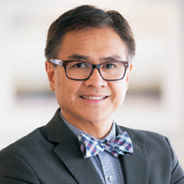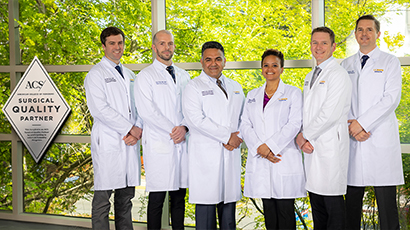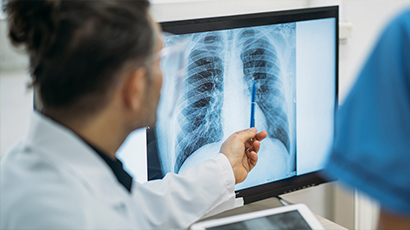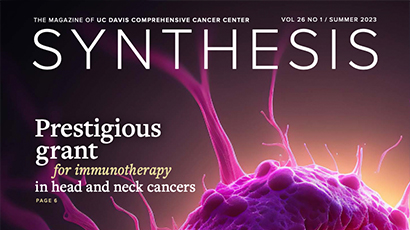Dear Reader,
You may have heard it said that cancer is a reminder of our humanity. At UC Davis Comprehensive Cancer Center, we are reminded daily of the human-centered focus of our mission.
In this issue of Synthesis, you will be inspired by grateful patients who have overcome incredible odds to survive, return to joy, and give back in meaningful ways.
Our commitment to meet patients where they are is key — not just in helping them navigate obstacles but in finding those regions where health care is remote and less accessible. Whether urban or rural, serving these areas where health disparities are prevalent is an important priority for us.
We are doing all we can to reduce cancer burdens that are all too common in marginalized communities. For example, read in this issue about our 45-foot MobileMammo+. This mobile mammography clinic will travel to destinations far and wide in the vast area we serve in Northern California. If people can’t get to us, we’ll go to them.
We hope to expand the service to include other cancer screenings in the future, and these screenings will be accompanied by education and prevention counseling.
This is how we conquer cancer and rise to meet our UC Davis Health promise to “Believe in Better.”
Also, in this issue of Synthesis, you’ll read about a new CT imaging system combined with cutting-edge robotic-assisted technology designed to detect lung cancer at an earlier stage. In fact, for the first time at UC Davis, we are diagnosing more stage 1 lung cancer cases than late-stage cases. Earlier diagnosis provides our patients with a significant advantage, greatly improving their chances of successful treatment outcomes.
Inside the magazine, you’ll also see how we are charting a new frontier with the launch of our Head and Neck Malignancies Innovation Group. We hope to change the course of this group of devastating cancers that is so prevalent in our region. Since these cancers are also common in dogs, we have launched a new comparative oncology clinical trial at our affiliated cancer center at the UC Davis School of Veterinary Medicine. The trial utilizes biomedical engineering technology pioneered at UC Davis.
You’ll find so much more to uncover within the pages of this issue — from creative community prevention and educational outreach to the various ways you can get involved in raising money for cancer research.
Join us as we take a lead role in piloting the next generation of cancer care through advanced scientific discoveries delivered with a human touch. We appreciate you.
Primo “Lucky” Lara Jr. M.D.
Director, UC Davis Comprehensive Cancer Center






